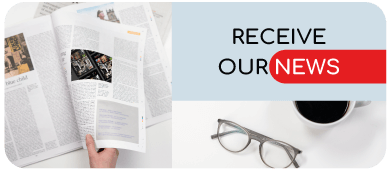
The crisis situation we had to face led us to reflect on many “certainties“ that we thought were immutable, including the way we work and do business. The Covid-19 emergency forced us to change and to have a more open general vision, to focus on digitization and new communication methods, to invest in alternative forms of business: this is what emerges from the interesting considerations of Luca Eustacchioni, CEO of Omge, a leading company on the market in the production of drawer slides and sliding systems for doors and furniture.
New opportunities can arise from a crisis situation. Will there be changes in your business reality and if so, which ones?
“The fact that the cause is of a health-related nature has caused this crisis to manifest itself in a totally unpredictable way, catching almost all entrepreneurs, medium, small or large, absolutely unprepared. To think that many CEOs have in the past been able to include this type of risk in the analysis of risk management is in fact quite difficult. Like all periods of deep crisis, this will lead to the end of the lessons that every CEO will be able to take into account. Beyond the aspects related to the control of cash flow, receivables, forms of payment and a better distribution of costs that the crisis will obviously teach to strengthen, think for example of the importance that the concept of “smartworking“, so far from the rather traditionalist mentality of Italian entrepreneurship, could instead have in the future. Streamlined structures, better management of proxies, both in the concession and in the reception phase, greater accountability of interpreters are just some of the advantageous aspects that could derive from this situation. Obviously in the manufacturing activity the concept is not very applicable except for commercial-administrative tasks, but the more open general vision that the current situation obliges Italian business to assume will be an advantage for the future.
In our specific case, this will be accompanied by the acquisition of greater skills in the digital world that will allow operators to overcome the lack of physical contact between company and customer that health measures prevent them from having. The major changes that we will try to make to our reality will therefore go in this direction, digitization and new methods of communication. I believe that a complete return to “as it was before“ will never happen except in a very long time and in ways that will not be the same anyway; I also believe that the business world will be able to adapt. The most classic example is that of school teaching, which has been able to transform classrooms into conference calls in a short time. If this situation continues over time, the validity of trade fairs in the sector will also be questioned and it is therefore important to invest in alternative forms of business and communication“.
In this period the importance of the web has emerged with greater force. Are you thinking of using these means more even after the emergency?
“I would say that I have already implicitly answered this second question in the previous answer. For some time we had already started a process of updating the web tools in anticipation of the absolute need to develop their use. We are restructuring our web site in order to be able to foresee at first the possibility of doing B2B business and then at a later stage to also evaluate the entry into B2C business, which will obviously have to involve an internal restructuring in order to allow its implementation. Any digital marketing tool will have to be an alternative to the decreasing effectiveness of traditional tools and the impossibility, at least for the moment, to have a direct presence in the markets. So to answer your question I would say that more than thinking or not to use digital media more we will all be forced to do so in order not to lose visibility“.
In addition to product quality and technological innovation, what other elements do you plan to focus on to strengthen your image in domestic and foreign markets (quality of work, sustainability, environment, solidarity.)?
“I would say that the word 'sustainability' encapsulates everything that contributes to maintaining this characteristic in business processes, starting with financial sustainability, which is the most important thing for companies, and ending with sustainability in terms of quality of work, environment, etc.“. Beyond the two months in which we have been able to work very little, what worries me the most is the reduced demand in the markets that will characterize the coming months and therefore financial sustainability is the first thing to pay attention to to avoid that serious problems can become irremediable. Quality of work, environment, attention to employees and the workforce are all ethical aspects that contribute to the sustainability of the company. Apart from the products, quality and technology that are obviously the basis, I believe that the best image that a company can give is that of being solid and present. What we have to do is to keep this conviction alive in our customers and we have to do it through modern communication, integrating product and innovation aspects with other aspects more related to the life of the company.


 en
en  Italian
Italian French
French German
German Spanish
Spanish Portuguese
Portuguese













